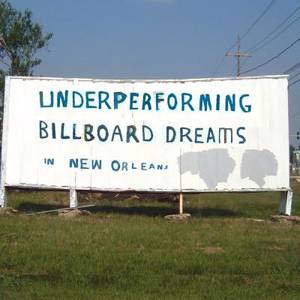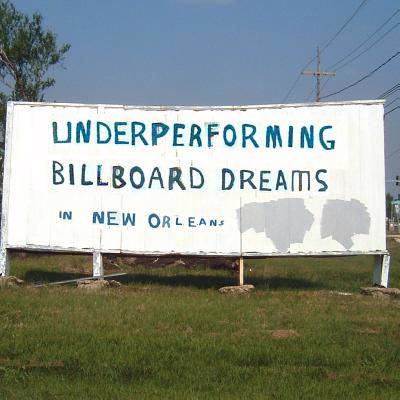
Bedankt voor het vertrouwen het afgelopen jaar! Om jou te bedanken bieden we GRATIS verzending (in België) aan op alles gedurende de hele maand januari.
- Afhalen na 1 uur in een winkel met voorraad
- In januari gratis thuislevering in België
- Ruim aanbod met 7 miljoen producten
Bedankt voor het vertrouwen het afgelopen jaar! Om jou te bedanken bieden we GRATIS verzending (in België) aan op alles gedurende de hele maand januari.
- Afhalen na 1 uur in een winkel met voorraad
- In januari gratis thuislevering in België
- Ruim aanbod met 7 miljoen producten
Zoeken
€ 52,45
+ 104 punten
Omschrijving
All billboards in New Orleans in the fall of 2005 were underperforming; if not rendered absurd or irrelevant by catastrophe, erased by the hurricane to blither like old TV screens tuned to grey noise. Many would stay that way for months and years as advertisers had no interest targeting a much depopulated city beset and preoccupied with basic concerns. Closer to the ground, language sprouted. Ugly mass produced plastic signs advertising recovery services proliferated and many took matters into their own hands: with a can of spray paint, shard of plywood and a useful service to proclaim, a person was in business. This book promotes those efforts and imagines the billboard as a civic witness, memorial, reflection and marquee for stories from an extraordinary time.
Specificaties
Betrokkenen
- Auteur(s):
- Uitgeverij:
Inhoud
- Aantal bladzijden:
- 106
- Taal:
- Engels
Eigenschappen
- Productcode (EAN):
- 9780615973845
- Verschijningsdatum:
- 24/10/2014
- Uitvoering:
- Paperback
- Formaat:
- Trade paperback (VS)
- Afmetingen:
- 216 mm x 216 mm
- Gewicht:
- 204 g

Alleen bij Standaard Boekhandel
+ 104 punten op je klantenkaart van Standaard Boekhandel
Beoordelingen
We publiceren alleen reviews die voldoen aan de voorwaarden voor reviews. Bekijk onze voorwaarden voor reviews.









